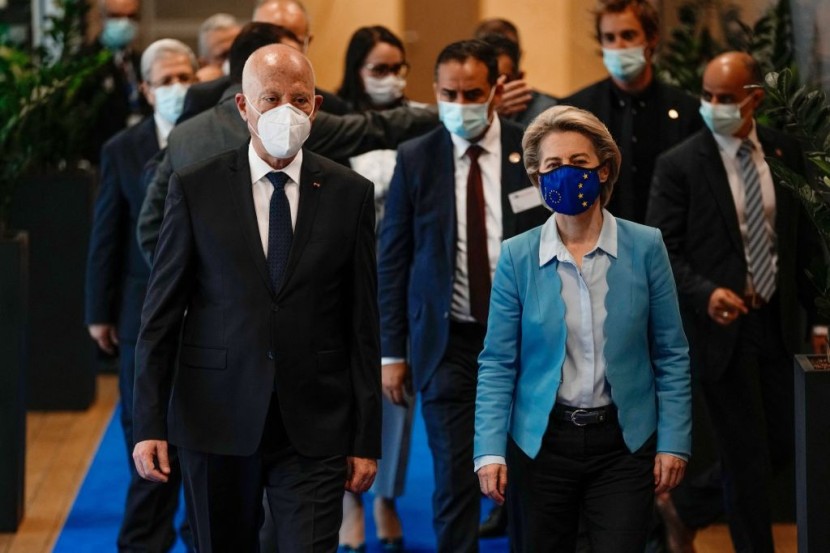
- The European Union offers a $1 billion aid package to Tunisia to help the region develop its battered economy
- The announcement was made by European Commission President Ursula von der Leyen during a trip to Tunisia
- The commission president was joined by Dutch Prime Minister Mark Rutte and Italian Prime Minister Giorgia Meloni
The European Union is offering Tunisia a $1 billion aid package to help the region develop its battered economy, rescue state finances, and address the current migration crisis.
Most of the funds the bloc offers Tunisia are contingent on the latter agreeing to economic reforms. European Commission President Ursula von der Leyen was the one who announced the aid package during a visit to Tunisia alongside Dutch Prime Minister Mark Rutte and Italian Prime Minister Giorgia Meloni.
EU Offers Tunisia $1 Billion Aid Package
The officials' efforts were spurred by increasing concerns among European officials regarding Tunisia's stability. It is seen as part of a last-ditch effort by major donors to urge Tunisian President Kais Saied to agree to the terms of a massive $1.9 billion International Monetary Fund (IMF) bailout, as per Reuters.
So far, Saied has rejected all of the proposals originally made by his government to cut subsidies and restructure state-owned companies that continue to incur losses. He argued that this risks a social explosion.
Tunisian state media cited the president as saying that he had already "confirmed" during the meeting with the European leaders that "solutions cannot be in the form of diktats and the IMF should review its prescriptions."
However, donors argue that time is almost up for Tunisia to agree to the loan and prevent a potential collapse in its state finances. This comes as they are willing to lend the region funds with the reassurance of fully costed reforms that would allow it to repay its debts in the future.
The situation comes two days after the Italian prime minister said that Europe could see a wave of refugees and migrants from North America. According to Aljazeera, she claims that this would be what officials have to face if financial stability in Tunisia is not safeguarded.
Addressing the Migrant Crisis
Now, any new agreement based on different reforms could take several months to negotiate. Furthermore, Italian Prime Minister Meloni has continued to push the IMF to relax its conditions on Tunisia.
Authorities also discussed a series of longer-term European investments, such as ongoing plans for a $161 million digital cable link to Europe. Another one is a $320 million renewable energy power export project.
Von der Leyen also announced that the EU plans to provide more than $100 million to Tunisia for border management, search and rescue, anti-smuggling operations, and returns "rooted in respect for human rights."
In a statement, Tunisia's presidency said it was also creating a partnership with the EU to address illegal migration. However, Saied said that the solution that some officials call for, which is to settle migrants in exchange for money, is neither humane nor acceptable, said France24.
© 2025 HNGN, All rights reserved. Do not reproduce without permission.








